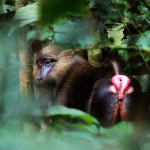
African Safaris for Everyone
Tried and Trusted by Safari Lovers
Rated 5/5 on SafariBookings. Independent feedback based on 115 reviews. We are also members of leading tourism organizations such as…




4000+ happy guests since ’13
100% customizable trips
24/7 support on safari
Secure bookings
Rediscover the Wild… Africa and Beyond

Snow Leopards of India 2026
We fly from Delhi to Leh – in search of not only the elusive Snow Leopard, but also the Pallas Cat and the Siberian Lynx. The drastic altitudinal gain from Delhi requires complete acclimatisation to be able to adapt to the new height…

Gabon 2026: Of Birds & Bees, Mandrills, Gorillas and a Bwiti Ceremony
Gabon is a wild place of pristine old-growth forests where there are almost no human settlements, and where wild animals live protected within the thick foliage of the Congolese rainforest…

Mana Magic & Moremi Mysteries: Zimbabwe & Botswana 2026
We’ll start our journey in a hidden corner of Botswana’s world famous Okavango Delta, in the erstwhile hunting grounds of Chief Moremi of the BaTawana people. Its reputation as a place of great drama precedes us, where predator and prey are locked in the daily life and death struggle for survival…
The Chalo Africa Safari Diary
Then I Saw the Congo: A Bonobo, Forest Elephant & Mangabey Fest
Trip Report Courtesy Our Troop of Valiant SafariTalkers Image above: Christmas Day — Camping on a sandbar in Lobeke NP! Courtesy @gatoratlarge With the magic of the Congo still burning bright in their memories, some of our guests have been busy chattering away about Chalo Africa’s December Congo Expedition on SafariTalk. We thought it best to directly…
Continue Reading » Then I Saw the Congo: A Bonobo, Forest Elephant & Mangabey Fest
India Wildlife Tour 2026: Snow Leopards, Tigers, and Red Pandas
Three Distinct Expeditions. One Epic Wildlife Adventure. Snow Leopards | Bengal Tigers | Red PandasLed by Sangeeta Sahaya | February – March 2026 | Join One, Two, or All Three Why Travel to India with the Chalo Explorers Club? From the high Himalayas to the deep jungles of Central India and the misty ridges of…
Continue Reading » India Wildlife Tour 2026: Snow Leopards, Tigers, and Red Pandas
Our African Safari Partners
We partner with some of the best African safari camps and lodges. Our safari experts visit these camps personally and provide you with an unbiased view of each property.


